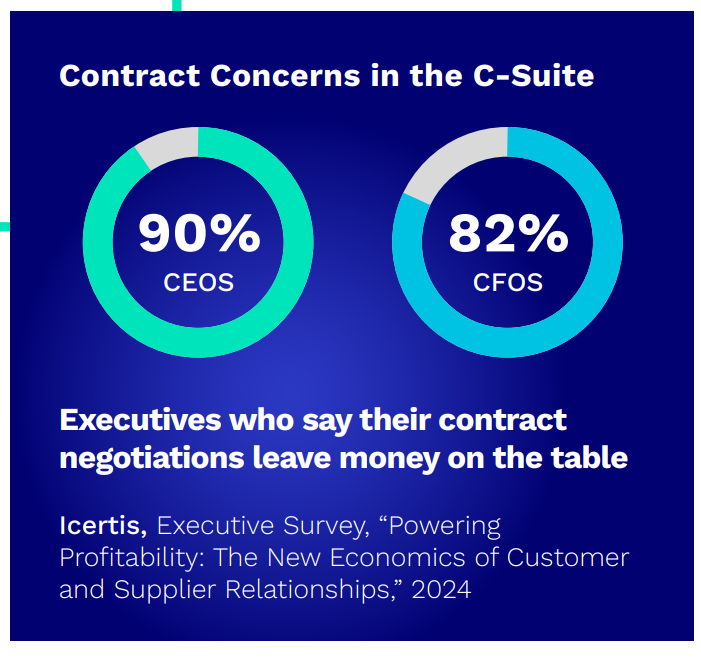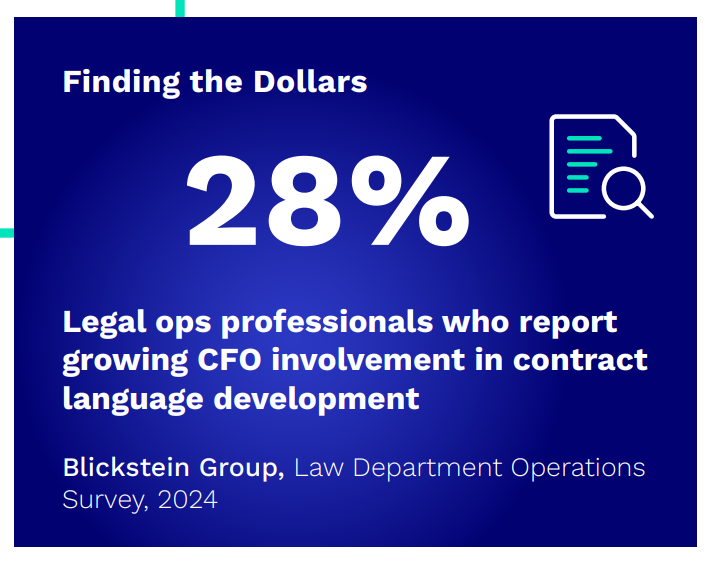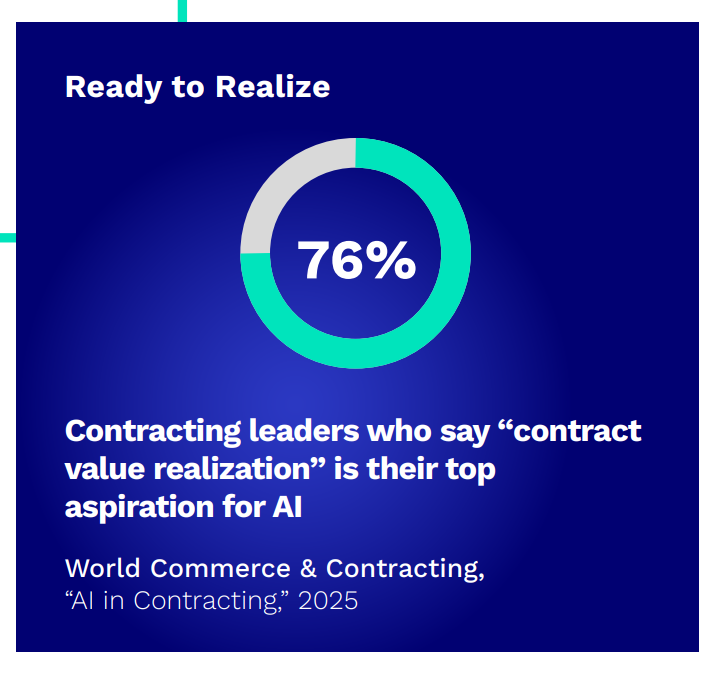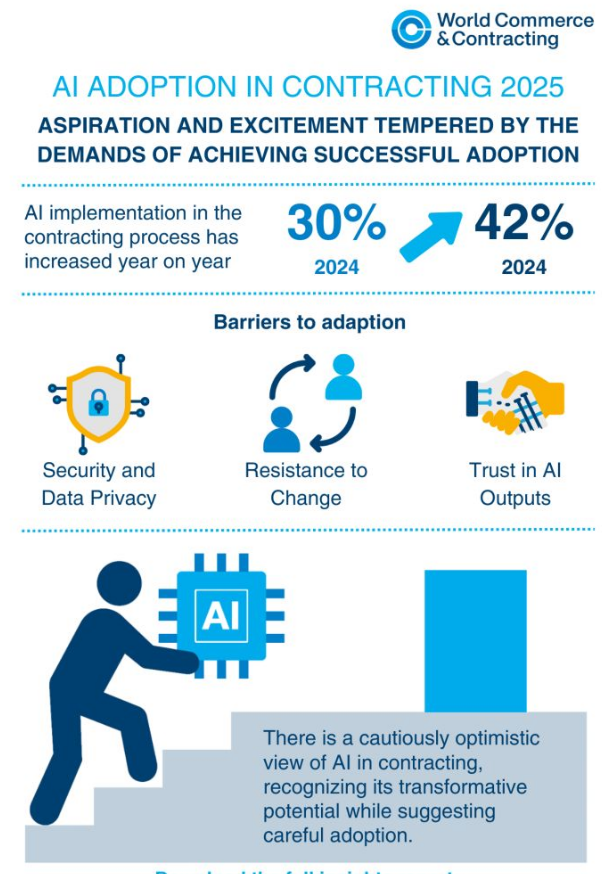Legal Market Insights
Icertis’ report on ‘The 2025 State of Contracting’ highlights three important trends in contract management which reveals a clear evolution in how businesses approach contract management. The report further highlights a shift from viewing contracts primarily as risk management tools to recognizing them as strategic assets that can drive business performance.
Author :
Everything LegalTech
Published :
November 26, 2025


March 20, 2025
Icertis’ report on ‘The 2025 State of Contracting’ highlights three important trends in contract management which reveals a clear evolution in how businesses approach contract management. The report further highlights a shift from viewing contracts primarily as risk management tools to recognizing them as strategic assets that can drive business performance.
We agree with Icertis in accepting that 2025 is shaping up to be a transformative year for businesses. Global markets are evolving, AI is revolutionizing how companies operate, and organizations are rethinking how they manage relationships with suppliers, customers, and partners.
In its “2025 State of Contracting” report, Icertis delivers 30+ data points on how organizations are responding to the trends by leveraging contracts to improve profitability, risk management, and operational efficiency in the year ahead.
"2025 stands to be a monumental year for businesses. A new administration in Washington is enacting sweeping changes to how the world trades goods and does business; market volatility is putting investors on edge; and in the middle of it all, AI continues to advance at breakneck speed, opening up almost every business and business process to enormous disruption and opportunity."
This Icertis 2025 report is based upon the findings from diverse sources. A majority of Icertis customers opted-in to allow their anonymized contract metadata to be analyzed by Icertis data scientists for research and benchmarking purposes for the outcome of this report. To further supplement this, Icertis have included a few highlights from their data set based on the +10M contracts they manage.
The report highlights three important trends of contracting:
The report highlights a significant disconnect between contract negotiation practices and their perceived value. Despite executives recognizing the importance of contracts, current negotiation processes often fail to capture their full potential.
Key points:

Outcome? - This trend reveals a critical need for businesses to realign their contract negotiation strategies with their overall business objectives. The focus on risk mitigation, while important, is overshadowing the potential for contracts to drive business performance and value creation.
There's a growing recognition of contracts as tools for business performance, not just risk management. This shift is evident in the evolving role of legal operations and increased involvement of other departments in contract processes.
Key points:

Outcome? - This trend indicates a positive shift towards viewing contracts as strategic assets. It suggests that organizations are beginning to unlock the full potential of their contracts by focusing on performance metrics and involving a broader range of stakeholders in the contract management process.
AI, particularly generative AI, is rapidly transforming contract management processes. Its adoption is accelerating across various aspects of contract lifecycle management, from creation to analysis and performance tracking.
Key points:


Outcome? - The widespread adoption of AI in contract management is set to revolutionize how organizations handle their contractual relationships. AI's ability to automate tasks, provide insights, and monitor contract performance promises to unlock significant value and efficiency gains. However, concerns about security, accuracy, and ROI need to be addressed for full-scale implementation.
The Icertis report reveals a clear evolution in how businesses approach contract management. There's a shift from viewing contracts primarily as risk management tools to recognizing them as strategic assets that can drive business performance. This change is being accelerated by the rapid adoption of AI technologies, which are enabling more efficient and effective contract management processes.
As businesses continue to adapt to these trends, we can expect to see:
These changes promise to transform contracts from administrative burdens into powerful tools for driving business growth and efficiency. However, organizations will need to carefully navigate challenges related to AI implementation, data security, and change management to fully realize these benefits.
The report highlights the impact of the trends on the following six industries:
1) Banking & Insurance:
2) Government & Public Sector:
3) Healthcare & Life Sciences:
4) Industrial Manufacturing & Automotive:
5) Retail & Wholesale:
6) Technology, Media & Telecom (TMT):
In my next edition, I'll discuss about the "Traditional CLM vs AI-enabled CLM - The Right Fit For Your Business".
Questions? I'm always eager to discuss. Let's get in touch!
Happy Reading!
Thanks & regards
AYTA LegalTechConsultingGet in touch at
reach@ayta-legaltech.comStay ahead and subscribe for expert legal tech updates, worldwide.